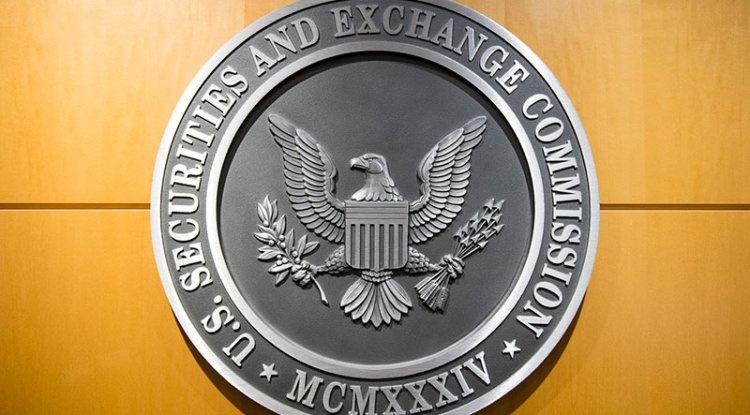What Is Bitcoin? How to Mine, Buy, and Use It
Bitcoin (BTC) is a 2009 digital or virtual currency that uses peer-to-peer technology to enable instant payments.

What Is Bitcoin?
Bitcoin has become a topic of intense discussion in recent times, yet the concept remains unclear to many individuals. Bitcoin is a type of digital currency that was created in 2008 by a mysterious individual or group known as Satoshi Nakamoto. It operates on a decentralized network, which means it is not regulated by any governing body or financial institution. Transactions are recorded on a public ledger called the blockchain, which is supported by a global network of computers.
However, there is more to Bitcoin than just its basic concept. In this article, we will delve into the fundamentals of Bitcoin and elucidate how it diverges from traditional currencies. Furthermore, we will scrutinize the advantages and drawbacks of employing Bitcoin and address several misunderstandings that people have concerning this innovative digital currency.
Whether you are an experienced investor or someone who is merely curious about this novel technology, we urge you to read on and gain knowledge about the intriguing realm of Bitcoin.
Understanding Bitcoin
Bitcoin represents a revolutionary digital currency that has transformed our perception of money and finance. It is an independent currency that relies on blockchain technology, which is a distributed ledger that enables secure and transparent transactions. The blockchain represents a publicly accessible ledger that maintains an account of all previous Bitcoin transactions and is upheld by a global network of computers. The confirmation process for transactions is achieved through mining, which utilizes potent computers to solve intricate mathematical equations, verify transactions, and earn new Bitcoins. This establishes network security and provides resistance against tampering.
Since Bitcoin is decentralized, it is not controlled by any central authority, making it challenging to censor or manipulate. This attribute makes it a popular option for individuals who prefer to make transactions without intermediaries such as banks or other financial institutions. Moreover, Bitcoin provides quick and secure transactions without requiring intermediaries, which allows people to conduct international transactions without concerns regarding exchange rates or other fees.
Despite being in existence for more than a decade, Bitcoin remains a relatively new technology that is undergoing constant evolution. Currently, there exist numerous cryptocurrencies based on blockchain technology, each possessing unique features and applications. As the world continues to embrace digitization, it is expected that the field of cryptocurrencies and blockchain technology will continue to experience more innovation. Anyone who desires to participate in this thrilling and rapidly expanding industry must comprehend Bitcoin's fundamentals.
Bitcoin's Blockchain Technology
Bitcoin's blockchain technology serves as the foundational bedrock for the very existence of Bitcoin. The blockchain is a decentralized, distributed ledger that meticulously chronicles all Bitcoin transactions in an overtly secure and transparent manner. Its structure comprises an assortment of blocks, each block containing a set of transactions that have undergone extensive verification and validation via an intricate network of nodes.
The blockchain boasts an immutable capacity to uphold a record of transactions, making it an impervious and tamper-proof system. Once a transaction has been inscribed onto the blockchain, it becomes unalterable and irremovable. This impressive feat is accomplished via a convoluted algorithm that guarantees the linkage of each block to its predecessor, thereby establishing a permanent and unmodifiable record of all transactions.
The decentralization of the blockchain is another critical component, separating it from traditional financial systems that remain under the jurisdiction of central authorities. The blockchain instead functions as a decentralized network, bereft of any singular governing entity. This renders it immune to censorship and manipulation, making it a safe and trustworthy platform for conducting transactions with complete confidence.
Apart from its prevalent use in the world of finance and cryptocurrency, the blockchain harbors a plethora of promising potential applications across diverse fields such as supply chain management, healthcare, and voting systems. Its decentralized and secure nature is the ideal solution for any situation where transparency and trustworthiness are of paramount importance.
Although the blockchain technology underpinning Bitcoin is still in the nascent stages of its development, it possesses the capability to revolutionize the way we interact with technology. As the technology matures and novel use cases come to light, it is only natural to anticipate even more innovation and growth within the world of blockchain and cryptocurrency.
How to Mine Bitcoin
Interested in engaging in Bitcoin mining? Before you start, it is crucial to comprehend the fundamental principles of Bitcoin mining. This process involves solving complex mathematical equations to authenticate transactions on the Bitcoin network. It demands an enormous amount of computational power, which requires specialized mining hardware.
Acquiring the hardware is just the first step. Joining a mining pool is essential to increase your chances of earning Bitcoin. A mining pool is a group of miners who combine their computing power to solve equations and earn Bitcoin together. However, sharing your earnings with other pool members is a requirement.
Once you have the hardware and have joined a mining pool, the next step is to download and install mining software. This software connects you to the Bitcoin network and allows you to commence mining. Ensure that you have configured the mining software correctly, including setting up your wallet address and other necessary information.
Bitcoin mining is a highly competitive sector, and earning Bitcoin may take some time. Being patient is essential. Additionally, be prepared for the significant costs of running your mining hardware. However, investing time and resources in Bitcoin mining can be a profitable way to earn Bitcoin while contributing to the security of the Bitcoin network.
Before you start mining, it is essential to do your research. Specialized mining hardware, such as ASICs, can be quite pricey. Also, various mining software options have different features and user interfaces. Therefore, choose the right software for you. Additionally, joining the right mining pool is crucial to maximizing your earnings.
The biggest cost of Bitcoin mining is the upfront investment in mining hardware. Furthermore, Bitcoin mining requires a lot of power, which can result in high electricity bills. Find the most cost-effective options for both hardware and electricity, and do not forget about ongoing maintenance costs.
Overall, Bitcoin mining can be lucrative, but it requires a considerable investment of time and resources. Research the hardware, software, and mining pool to find the best options that suit your needs. With effort and patience, you can start earning Bitcoin and contribute to the security of the Bitcoin network.
How Do You Buy Bitcoin?
If one wishes to invest in Bitcoin, the foremost task is to discover a reliable exchange platform that enables you to procure and exchange digital currencies. Some of the prevalent options are Coinbase, Binance, and Kraken. Once you have made up your mind about the platform, the next course of action is to initiate an account and verify your identity by providing relevant details such as name, address, and government-issued identification.
Following the completion of registration, you must add cash or other digital currencies to your account. Some platforms might also permit payment through credit cards or bank transfers for procuring Bitcoin. Once your account has been funded, you can place an order to purchase Bitcoin at the current market price. However, the transaction fee imposed by the platform will be nominal.
It is crucial to note that the value of Bitcoin can be remarkably volatile, so thorough research is mandatory to comprehend the potential risks before proceeding with the investment. Furthermore, it is essential to safeguard your Bitcoin securely, given that there have been instances of exchanges being compromised and digital currencies being pilfered. To avoid this, several investors choose to store their Bitcoin in a hardware wallet, a tangible device that stores your private keys offline.
On the whole, acquiring Bitcoin can be an effortless procedure once you have determined the platform and established your account. Nevertheless, it is crucial to carry out due diligence and comprehend the risks before investing any money.
Can bitcoin be converted to cash?
Yes, Bitcoin can be converted into cash. The primary advantage of investing in Bitcoin is the possibility of appreciation and ultimately selling it for a profit. The majority of digital currency markets enable you to exchange your Bitcoin for actual money, which can be withdrawn to your bank account or used for purchasing.
However, it's worth noting that the process of converting Bitcoin to cash is not uniform across exchanges or countries. Certain exchanges may have limitations on the amount of Bitcoin that can be sold at one time or require additional steps for verification before allowing funds withdrawal. Moreover, the fees related to selling Bitcoin for cash may differ significantly depending on the exchange and the amount being sold.
It is essential to mention that exchanging Bitcoin for cash might activate a taxable event, depending on your area of jurisdiction and the profit earned. Precise records of transactions should be maintained, and if there is any uncertainty about obligations, a tax professional should be consulted.
Overall, even though Bitcoin can be converted into cash, the process may entail complications and associated expenses. Nevertheless, for numerous investors, the prospect of profits from investing in Bitcoin outweighs the required effort.
How Is Bitcoin Used?
Bitcoin, an autonomous digital currency, has a plethora of utilities. Among the most prominent is its function as a medium of exchange. Numerous businesses and vendors receive Bitcoin as a mode of payment, allowing consumers to purchase products and services with this cryptocurrency. Bitcoin is also utilized for international transactions, evading the fees and restraints imposed upon traditional payment methods.
Furthermore, Bitcoin is often regarded as an investment or speculative asset. Many individuals procure and retain Bitcoin as a long-term investment with the expectation of future price surges. Additionally, some traders engage in short-term buying and selling of Bitcoin to capitalize on market volatility.
Bitcoin also has a role in charitable donations or fundraising campaigns. The expediency and security of Bitcoin transactions make it a powerful way to transfer funds quickly and effectively to those in need.
Lastly, Bitcoin is commonly employed as a store of value or hedge against inflation. Since Bitcoin has a finite supply, some investors deem it a safeguard to preserve their wealth from inflation or economic instability.
All in all, Bitcoin's functions and applications are multifarious, with the potential for new uses to emerge as the cryptocurrency market continues to develop and progress.
Payment
Payment with Bitcoin involves using digital currency to pay for goods or services. Bitcoin payments work similarly to other forms of digital payments, with the difference being that transactions are conducted on a decentralized network without the need for intermediaries like banks.
To make a payment with Bitcoin, a person must have a digital wallet that stores their Bitcoin. The wallet generates a unique address that can be used to send and receive Bitcoin. When making a payment, the person sends the Bitcoin to the recipient's address, and the transaction is recorded on the blockchain, a public ledger that tracks all Bitcoin transactions.
Many online retailers and service providers now accept Bitcoin as a form of payment, including Microsoft, Expedia, and Shopify. In addition, some physical businesses like restaurants and coffee shops have started accepting Bitcoin payments using specialized point-of-sale systems.
Bitcoin payments are generally faster and cheaper than traditional payment methods, especially for international transactions. However, the volatility of Bitcoin's price can be a drawback, as the value of Bitcoin can fluctuate rapidly, sometimes by large amounts.
Overall, Bitcoin payments are becoming more widely accepted, and the technology has the potential to revolutionize the way we pay for goods and services. While there are some challenges to overcome, including the issue of price volatility, the benefits of faster, cheaper, and more secure payments make Bitcoin an exciting development in the world of finance.
Investing and Speculating
Investing and speculating in Bitcoin are two distinct approaches with different objectives and techniques. The act of investing in Bitcoin involves purchasing and holding the digital currency with the anticipation that its value will appreciate over some time. This method of investing is akin to buying other assets such as stocks or real estate. Investors typically evaluate Bitcoin's underlying fundamentals, such as its supply and demand dynamics, adoption rate, and possible use cases to determine whether it is a sound long-term investment.
On the contrary, speculating in Bitcoin entails buying and selling a digital currency to make short-term gains. This strategy is more akin to trading than investing, and speculators generally employ technical analysis and market trends to decide when to buy or sell Bitcoin. Speculators may also use leverage, which involves borrowing funds to amplify their gains or losses.
To illustrate, buying and holding Bitcoin for many years, as some early adopters did when Bitcoin was first introduced in 2009, is an example of investing in Bitcoin. Recently, companies such as Tesla and MicroStrategy have invested billions of dollars in Bitcoin as part of their treasury management strategy, viewing Bitcoin as a long-term store of value, which has aided in boosting its price.
In contrast, day trading, where a person purchases and sells Bitcoin within a single day, and swing trading, where a person holds Bitcoin for a few days or weeks before selling, are examples of speculating in Bitcoin. These strategies necessitate a significant amount of knowledge, experience, and risk management, as Bitcoin's price can be extremely volatile.
In summary, investing and speculating in Bitcoin can both be profitable, but they necessitate different approaches and risk tolerance levels. Investing in Bitcoin necessitates a long-term view and a belief in the technology's potential while speculating in Bitcoin involves exploiting short-term price movements.
Risks of Investing in Bitcoin
Investing in Bitcoin has the potential for substantial returns, but investors must be cognizant of the numerous risks associated with it. One such risk is regulatory, whereby governments may introduce policies that adversely impact Bitcoin's value. Certain countries have banned Bitcoin entirely, while others have put in place stringent regulations that can make it difficult for Bitcoin-based companies to operate.
Another risk is security, as Bitcoin is a digital currency that can be susceptible to hacking and theft. Investors must ensure that they keep their Bitcoin in a secure digital wallet and take measures to safeguard their private keys, which are required to access their funds.
- Insurance risk: is also a factor to be considered, as traditional insurance policies may not cover losses incurred from Bitcoin investments. Investors should look for insurance options that explicitly provide coverage for Bitcoin and other cryptocurrencies.
- Fraud risk: is another potential issue, with reports of scams and Ponzi schemes involving Bitcoin. Investors should exercise caution and conduct thorough research before investing in any Bitcoin-related scheme and avoid deals that appear too good to be true.
Finally, market risk is a concern as Bitcoin's value can be highly volatile and subject to fluctuations based on market conditions. Investors must be prepared for sudden price drops and only invest what they can afford to lose.
In summary, investing in Bitcoin comes with numerous risks, and investors need to consider them. Although the potential for significant returns may be attractive, it is crucial to approach Bitcoin investments with caution and an understanding of the potential risks involved.
Regulating Bitcoin
The topic of regulating Bitcoin has become a source of ongoing debate among governments and financial institutions worldwide. Bitcoin's decentralized nature poses challenges for regulation, and different countries have adopted different approaches to manage its use.
Some countries have embraced Bitcoin and other cryptocurrencies as potential sources of economic growth and innovation. These countries have taken a hands-off approach and allowed the market to self-regulate, avoiding strict regulations that may stifle innovation.
In contrast, other countries have taken a more cautious stance by imposing strict regulations on Bitcoin-related businesses and transactions. While these regulations aim to prevent money laundering and other illegal activities, they may also impede legitimate businesses from operating.
The absence of a global regulatory framework for Bitcoin has raised concerns about its potential use for criminal activities like money laundering and terrorism financing. Some governments have called for increased regulation to address these concerns, while others contend that such regulation could compromise the fundamental principles of Bitcoin and other cryptocurrencies.
All in all, regulating Bitcoin is a complex issue that requires a delicate balance between fostering innovation, protecting consumers, and preventing illegal activities. As Bitcoin and other cryptocurrencies become more prevalent, governments will likely continue to grapple with how best to regulate them.
How Long Does It Take to Mine One Bitcoin?
Bitcoin mining is the intricate process of verifying and recording transactions on the Bitcoin network in exchange for rewards in the form of new Bitcoins. The duration of mining one Bitcoin is influenced by numerous variables, including the processing power of the mining hardware, the complexity of the mining algorithm, and the present state of the Bitcoin network.
Back in the early days of Bitcoin, it was viable to mine one Bitcoin using an unsophisticated personal computer. However, as the Bitcoin network expanded and became more intricate, the mining process grew more intricate and necessitated the utilization of specialized hardware known as Application Specific Integrated Circuit (ASIC) miners.
Currently, the median time required to mine a single Bitcoin is approximately 10 minutes. This is due to the design of the Bitcoin network, which produces one block of transactions every 10 minutes. Miners compete to validate transactions and append them to the block, with the miner who solves the complicated mathematical algorithm first receiving the reward of new Bitcoins.
Nevertheless, as more miners join the network and the processing power of the network intensifies, the complexity of the mining algorithm increases as well. This implies that mining one Bitcoin becomes increasingly arduous and time-consuming. The present difficulty level of the Bitcoin network is so high that it is nearly impossible to mine one Bitcoin using a personal computer or even a single ASIC miner.
All in all, the duration of mining one Bitcoin is variable and depends on several factors. Although it may have been plausible to mine one Bitcoin using unsophisticated hardware in the past, the current state of the Bitcoin network necessitates specialized equipment and a significant investment to successfully mine new Bitcoins.
Is Bitcoin a Good Investment?
Bitcoin has been a contentious subject regarding investment opportunities. Although some individuals have reaped considerable gains from investing in Bitcoin, others have suffered losses due to the volatile nature of the cryptocurrency market.
On the one hand, Bitcoin represents a decentralized currency that is not beholden to any government or financial institution. This renders it a compelling investment alternative for those who are skeptical of traditional investments such as stocks and bonds. Moreover, Bitcoin possesses a finite supply, thus its value might continue to escalate as demand increases.
On the other hand, Bitcoin represents a highly volatile asset that can swiftly fluctuate in value. Historically, Bitcoin has undergone significant price oscillations, which can make it a precarious investment. Additionally, the absence of regulation and security in the cryptocurrency market can render it vulnerable to fraudulent activity and other illegal pursuits.
Investing in Bitcoin demands careful contemplation and comprehension of the associated risks. It is imperative to conduct thorough research and consult with financial experts before making any investment decisions. While Bitcoin can offer prospects for profit, it should be approached with caution and a long-term investment strategy in mind.
Related articles:
- What is cryptocurrency and how does it work?
- Is Cryptocurrency Safe? How to Safely Invest in Crypto
- Best & Latest Crypto Exchange Guide: Security, Fees, UX, stability
What's Your Reaction?





















